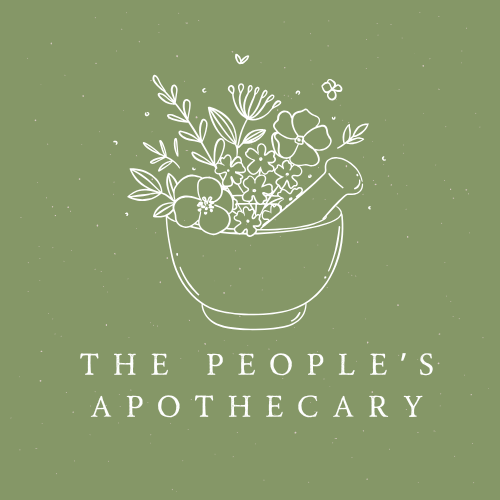What is the difference between an Herbalist and an Apothecary?
Herbalist vs. Apothecary: What’s the Difference?
If you're exploring the world of herbal medicine, natural healing, or plant-based wellness, you’ve likely come across the terms herbalist and apothecary. While they’re often used together—and sometimes interchangeably—they’re not quite the same.
So what is the difference between an herbalist and an apothecary? And how do they work together to support holistic health and community wellness?
Let’s break it down.
What Is an Herbalist?
An herbalist is a trained practitioner who works with plants to support healing and well-being. Herbalists use their knowledge of medicinal herbs to help people address physical, emotional, and energetic imbalances using natural remedies.
Key roles of an herbalist:
Consults with clients to recommend herbal remedies tailored to their needs
Crafts herbal formulations like teas, tinctures, salves, and syrups
Studies plant properties, energetics, and safety considerations
Offers education on how to use herbs safely and effectively
Often blends traditional wisdom with modern science
Herbalists may work one-on-one with clients, teach classes, make herbal products, or tend to gardens of medicinal plants. Some are self-taught, while others complete formal training or certification programs in clinical herbalism.
What Is an Apothecary?
An apothecary is a physical space or business that sells herbal products and natural remedies. Think of it as the shop, while the herbalist is the guide.
Traditionally, apothecaries were the original pharmacies—places where herbs were prepared, remedies were dispensed, and community members gathered to seek wellness support. Today, modern apothecaries like The People’s Apothecary are reviving this tradition with a focus on accessible, plant-based healing.
What you’ll find at a modern apothecary:
Herbal teas, wellness blends, and tinctures
Natural skincare and body care products
Seasonal remedies for immunity, stress, digestion, and more
Books, tools, and gifts related to herbalism and wellness
Workshops and community events focused on healing and connection
While an herbalist may own or run an apothecary, not all apothecaries are run by practicing herbalists. And not all herbalists have a physical storefront.
How They Work Together
At The People’s Apothecary, we combine both. Our apothecary is rooted in herbalist wisdom and designed to serve the community. We don’t just sell tea, we educate, empower, and create space for people to connect with the healing power of plants.
Whether you're just beginning your herbal journey or you're a longtime plant lover, we’re here to help you navigate natural wellness with confidence and care.
Visit The People’s Apothecary in Saint Paul, Minnesota
Explore our selection of handcrafted herbal teas, plant-based lattes, and natural wellness products—each thoughtfully created to nourish your body and uplift your spirit.
We also offer seasonal workshops, community events, and custom blends created with your needs in mind.
Ready to experience the magic of herbal healing?
